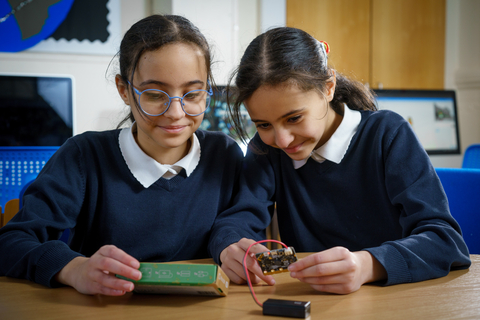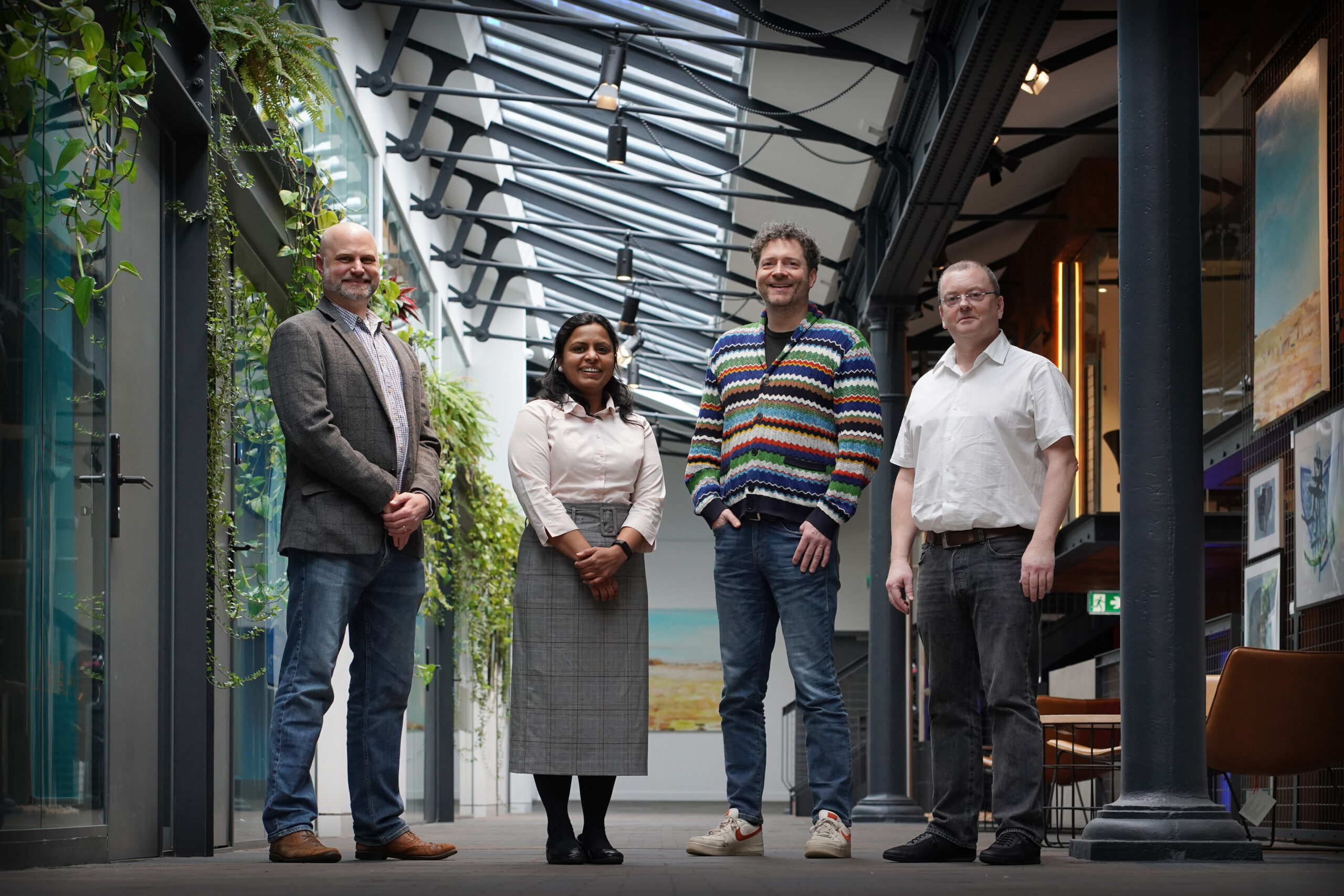Digital skills to receive major boost as 57,000 micro:bits are donated to Primary Schools
The following article originally appeared on businesswire.com on 30 March 2022.
The Micro:bit Educational Foundation, in partnership with the Scottish Government and Nominet, will donate 57,000 micro:bits across UK primary schools. Support from the Scottish Government will see every primary school in Scotland receive devices while England, Wales, and Northern Ireland will prioritise primary schools that require additional support. With many secondary schools now using micro:bits in the classroom, the project aims to boost support for younger children and provide teacher resources.
The Micro:bit Educational Foundation, who is the organisation behind the single-board microcontroller, has announced plans to help even more primary school children take their first steps into digital creativity and computing. In addition to the donation of hardware, comprehensive teaching resources and online Continuing Professional Development courses will also be made available.
As digital skills and computing become increasingly important core skills, this major boost to teaching these subjects will see approximately 3,000 UK primary schools receive around 20 devices each. Support from the Scottish Government will see every primary school in Scotland receive 20 devices, with the Foundation and Nominet working with primary schools in England, Wales and Northern Ireland to prioritise 22,000 devices to those that need additional support the most. Delivery of devices will begin from April onwards.
Having launched in 2016, today there are 6 million micro:bits being used by children all over the world, including most UK secondary schools. The Foundation has also seen growing adoption and demand from primary schools to teach 8 – 11-year-olds with the devices. With this major project, the Micro:bit Educational Foundation aims to boost usage in primary schools even further, providing the devices and resources to help teachers make coding exciting, accessible, and something they can teach confidently to younger children.

Teaching digital skills from a young age has impressive results and understanding computational thinking can greatly enhance a child’s creativity and life chances. However, research underpinning the project from the Micro:bit Educational Foundation and Nominet found that 61% of UK primary teachers responsible for teaching computing have no background in the subject, 3 in 5 also cite lack of resources as a barrier to teaching computing and digital skills.
Gareth Stockdale, CEO of the Micro:bit Educational Foundation, said: “Digital literacy and computational thinking are critically important not only to the future of our society, but to the future of children who will one day shape that society. They are increasingly important core skills, and we know that the earlier you learn them, the better. The micro:bit has become an essential tool that teachers and students alike have come to love. We’ve seen fantastic adoption in secondary schools, and we’re delighted to support and empower even more teachers to unlock children’s creative potential at primary level.”
Roll-out of the micro:bits will also complement a three-phase research programme, as the Foundation looks to assess, monitor and address the challenges, concerns and successes UK primary teachers experience improving digital literacy and in bringing micro:bits into the classroom.
Interested teachers and schools can visit the Micro:bit Educational Foundation website for more information.
Adam Leach, CTO, Nominet, said: “We are so pleased to see the continued roll-out of micro:bits in classrooms across the UK, enabling so many more primary school children to explore and develop their skills in digital creativity and computing. It’s exciting to think about the potential passion for technology this programme could set alight. On a practical level, it is really important that access to learning these essential skills is provided to children who might not otherwise have the opportunity to discover, experiment and master them. Each one of the 57,000 devices will impact on developing children’s core digital skills as citizens of a digitalised world – and perhaps even put some of them on a pathway to help fill the digital skills gap in the UK’s digital workforce of the future.”
About Micro:bit Educational Foundation
The Micro:bit Educational Foundation is a not-for-profit organisation founded in the UK in 2016, with the aim of inspiring every child to create their best digital future.
We do this by:
- developing hardware and software that inspires young people to get excited about technology and the opportunities it presents for them
- creating free, user-friendly educational resources to support teachers in delivering engaging and creative lessons
- working with like-minded partners to deliver high-impact educational programmes across the globe.
Note to editors
- The micro:bit launched in the UK in 2016 by giving free devices to every year 7 student as part of BBC’s Make it Digital, an unprecedented and highly ambitious project. It is now not only being used in most secondary schools to teach 11 – 14-year olds but is also popular with primary school teachers for 8 – 11-year olds.
- The Foundation has donated micro:bits to key institutions, including the National Centre for Computing Education’s schools lending scheme in England, Digital Xtra Fund in Scotland, Ulster Universities and Libraries NI in Northern Ireland. Through these schemes, approximately 30,000 devices were donated directly to schools, libraries and NGO’s.
- The Foundation offered up to 5,000 micro:bits to families in the UK wanting to continue learning at home during the ongoing COVID-19 pandemic. Following a single tweet, the Foundation received 8,500 requests in 13 hours.
- A key aim of the Micro:bit Educational Foundation was to bring the benefits of the micro:bit to children and teachers around the globe, and is being used in projects across Africa, Asia, Australasia, the Americas and Europe.




 Chris van der Kuyl, Principal, Chroma Ventures, said: “Our investment in human talent must begin at an early age through primary and secondary, en route to colleges, universities, or apprenticeships. Extracurricular activities like those funded by Digital Xtra Fund play such an important role for young people on that pathway, especially for those who may not have computing opportunities in the classroom.”
Chris van der Kuyl, Principal, Chroma Ventures, said: “Our investment in human talent must begin at an early age through primary and secondary, en route to colleges, universities, or apprenticeships. Extracurricular activities like those funded by Digital Xtra Fund play such an important role for young people on that pathway, especially for those who may not have computing opportunities in the classroom.” Kraig Brown, Digital Xtra Fund’s Partnership and Development Manager said: “We are very excited to be able to offer this
Kraig Brown, Digital Xtra Fund’s Partnership and Development Manager said: “We are very excited to be able to offer this